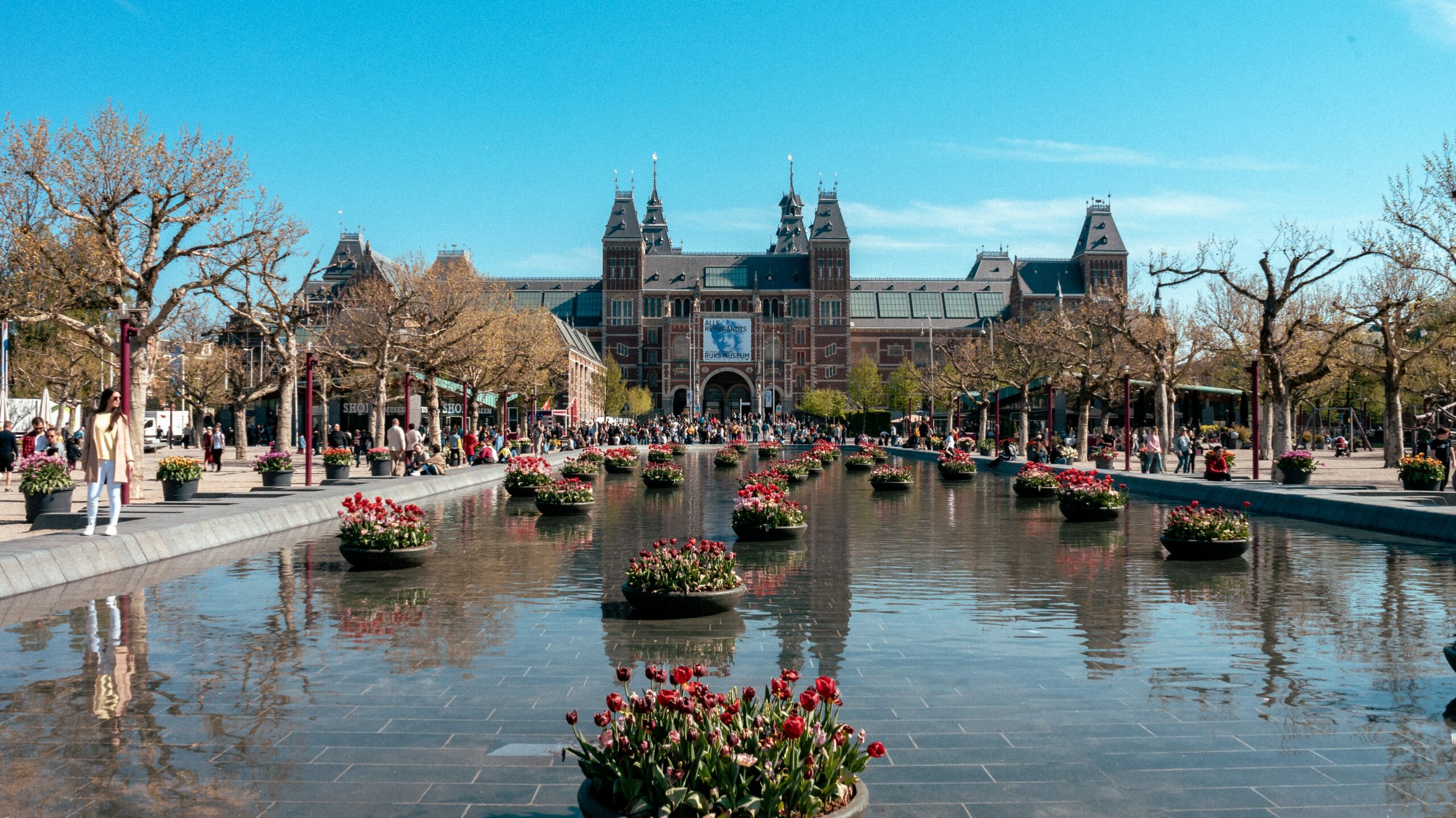If you’re planning to move to the Netherlands, evaluating the amount of money you’ll spend daily is an important factor in your journey. It’s important to know that the Netherlands are the 22nd most expensive country in the world in 2023 in terms of cost of living and the 9th most expensive country in Europe in terms of rent.
Everyday life costs:
The Netherlands doesn’t have higher prices in terms of grocery products compared to its border countries. To give you an idea, according to Numbeo’s last survey, this is the price of some basic grocery products:
| 1L of milk | 1,10 € |
| Loaf of fresh bread | 1,48 € |
| 1kg of rice | 1,83 € |
| 12 eggs | 3,24 € |
| Chicken breasts (1kg) | 9,14 € |
| Apples (1kg) | 2,13 € |
| Bananas (1kg) | 1,58 € |
| Oranges (1kg) | 1,53 € |
| Tomatoes (1kg) | 2,57 € |
| Potatoes (1kg) | 1,40 € |
The most popular supermarkets are Albert Heijn, Jumbo and Dirk. They offer everything that you need but are quite pricey. Shops like Lidl and Aldi are cheaper but rarer. The everyday cost depends on your purchases, diet or use of certain products.
Accommodation:
As we mentioned before, the Netherlands is one of the most expensive countries in Europe in terms of rent. In the city centre of Amsterdam, a 1-bedroom apartment costs around 1 671€ a month. If you don’t want to spend that much on your accommodation, you could consider living either outside the city centre (around 1 423€ per month) or in another city located more in the countryside. Cities like Maastricht, Eindhoven or Nijmegen are way more affordable. For example, in Eindhoven, a 1-bedroom apartment is around 1,190€ and a 3-bedroom apartment is around 1,690€.
Transport:
Transport is a substantial portion of your budget when you live in the Netherlands, especially if you often take the train. Indeed, the train is a very popular mode of transportation, with 1,3 million travellers per working day.
The basic monthly subscription for unlimited travel is called ‘Altijd Vrij’ which means ‘Always Free’ in Dutch and costs 353,21€ per month. Other subscriptions exist, like a 5€ one which allows you to get 40% off when you travel off-peak hours.
There is also one for 34,95€ that allows you to travel for free during weekends. If you are on a budget and you don’t necessarily need to take the train very often, biking is still the best option instead of the bus.
Finally, it is important to mention that companies usually pay for your daily commute. You will have to take a specific monthly subscription called ‘Traject Vrij’ which is a subscription for unlimited travel between one station to another.
Learn more about transports in the Netherlands here.
Education:
Public schools in the Netherlands are free from the ‘kindergarten’ until the end of high school. Private schools and international schools are not for free, however. 1 year can be from 7,100€ to 24,460€.
After high school, if students want to go to a public university, the Dutch government will cover most of the expenses. Only a small ‘contribution’ of 200€ a month will have to be paid by the student. Here again, if students go to a private school, for example, a business school, they will have to pay. The price differs depending on the school you’re going to.
Learn more about education in the Netherlands here.
The disparity of prices depending on your location:
The cost of living can be very different within the Netherlands depending on the city you live in. Amsterdam is the most expensive city in the country followed by Utrecht and The Hague. Amsterdam is on average 0.7% more expensive than Utrecht and 11.5% more than Eindhoven. What makes Amsterdam so pricey is: Amsterdam is the capital of the Netherlands and it is a very touristic and popular city. Therefore, everything will be more expensive: food, social life, and accommodation.
However, the work market for international people is better than in the rest of the Netherlands. Indeed, since a lot of international companies are settling down their European headquarters in Amsterdam, there are more job opportunities there and sometimes better salaries too.
Utilities:
Still, according to Numbeo, basic utilities (Electricity, Heating, Cooling, Water, Garbage) for an 85m2 apartment are around 227€. In many cases, those costs can be included in the rental cost with the mention ‘Utilities included’. If you live in a studio or a room with other roommates, utility costs will be cheaper. An internet subscription will be around 42.95€ per month. Once again, this cost can fluctuate depending on your needs and if you share the cost with other people in the apartment or house.
We hope you will have a better overview of the cost of living in the Netherlands now. As we said, depending on your budget, you’ll have several options in terms of cities, shopping locations, and transportation.
Abroad Experience BV is an international recruitment agency that offers unique career opportunities to multilingual job seekers. See our vacancies.

